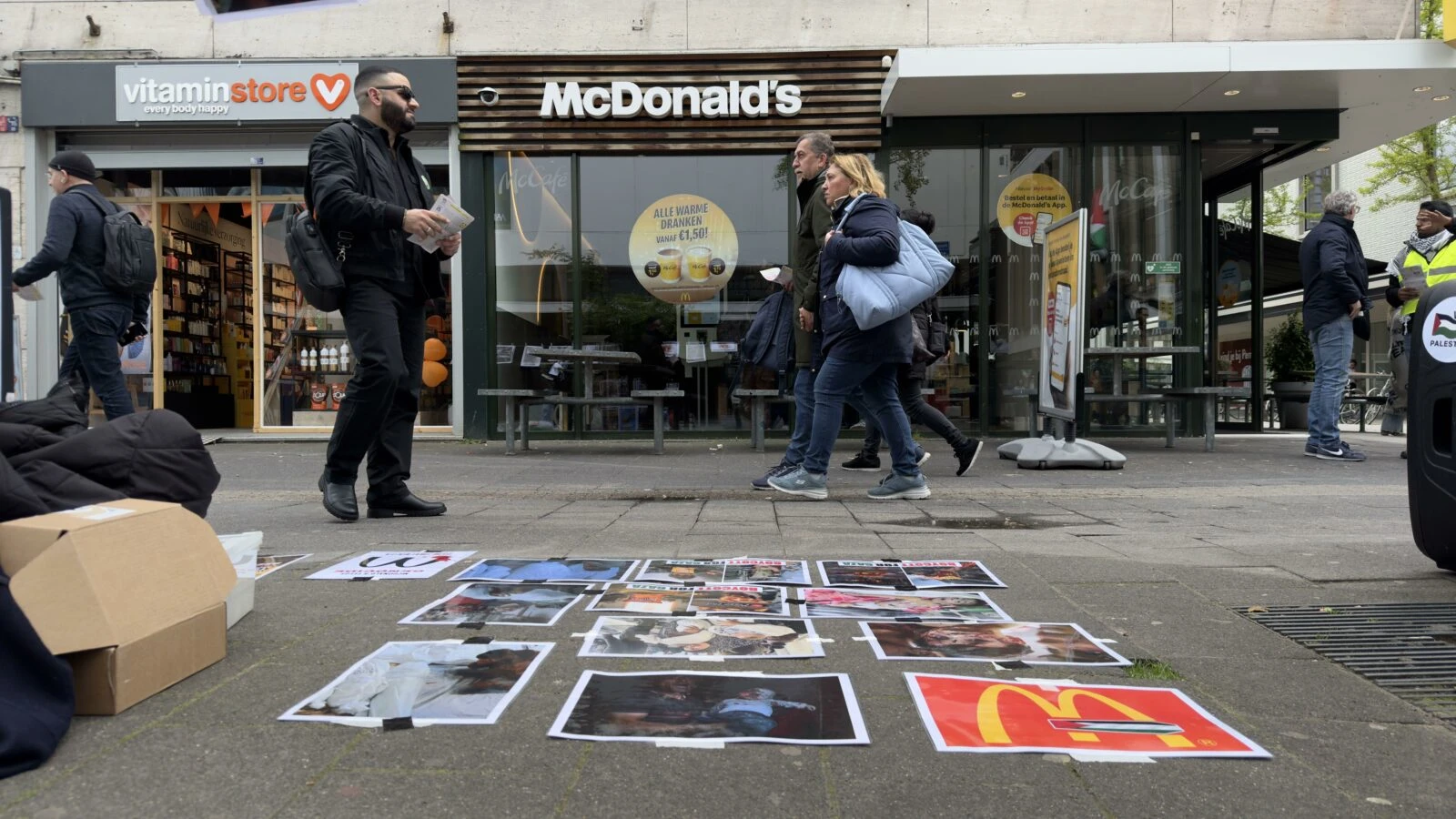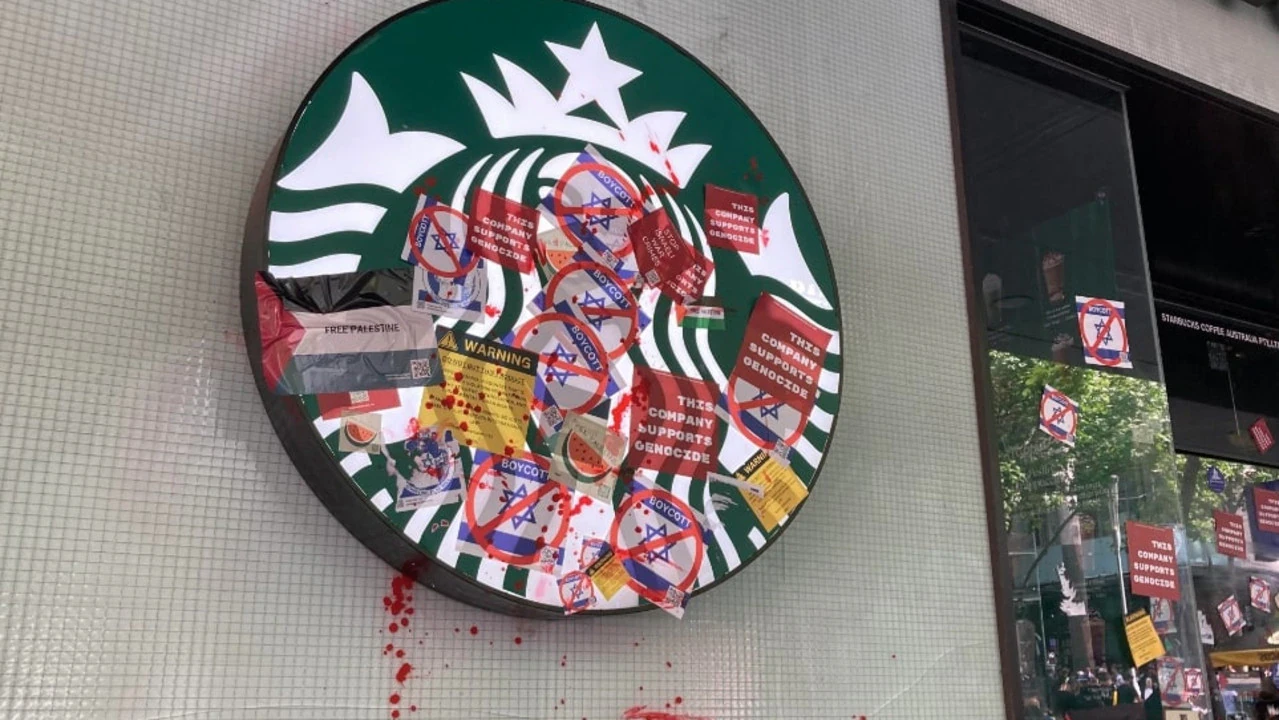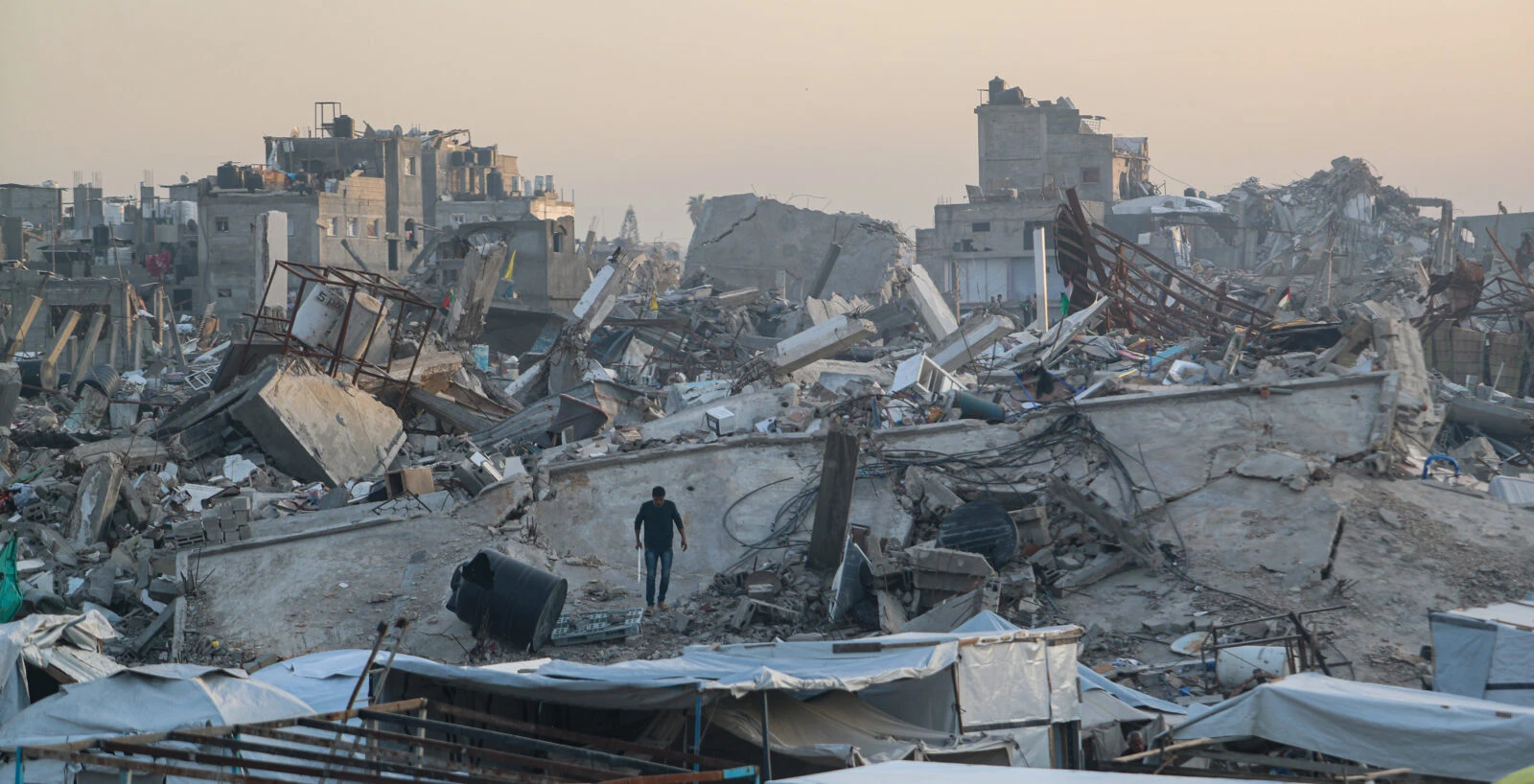Case of Israel: Global hurricane of consumer activism
 A person shops at a Whole Foods Market grocery store in New York City, U.S, on Dec. 17, 2024. (AFP Photo)
A person shops at a Whole Foods Market grocery store in New York City, U.S, on Dec. 17, 2024. (AFP Photo)
In recent years, consumer boycotts have emerged as one of the most powerful tools for citizens to demand justice and accountability. Among the most notable examples is the global boycott of Israel and Israel-linked corporations, which gained significant momentum during periods of heightened tension in the Israeli-Palestinian conflict.
These boycotts have not only highlighted the growing power of consumer activism but also served as an effective means of resisting perceived complicity in systemic oppression.
This wave of activism has inspired similar movements elsewhere, such as the recent boycotts sweeping the Balkans in response to soaring costs of living and economic inequality.
Boycotts against Israel and its supporters
The boycott of Israel and corporations linked to the country is not a new phenomenon but has taken on renewed significance in the aftermath of heightened conflict in Gaza in October 2023.
Global protests and grassroots campaigns targeted companies accused of supporting the Israeli government’s actions or operating in occupied Palestinian territories. Among the most high-profile targets were multinational giants such as McDonald’s, Starbucks, and Coca-Cola, which faced boycotts across the Middle East, Southeast Asia, and beyond.

The financial impacts of these boycotts have been substantial. McDonald’s, for instance, was heavily criticized for providing free meals to Israeli soldiers during the Gaza offensive, leading to widespread outrage in Muslim-majority countries like Indonesia, Malaysia, and several Middle Eastern nations. The company’s CEO later acknowledged that the boycotts had caused “meaningful commercial effects,” with sales in key markets like Indonesia and Malaysia falling sharply. Reports indicated that McDonald’s shares dropped by 4% during the final quarter of 2023, with the company’s Middle Eastern revenue shrinking significantly.
Similarly, Starbucks faced severe backlash after accusations of supporting Israeli policies, exacerbated by its legal actions against a union group that publicly expressed solidarity with Palestinians. This led to a noticeable drop in sales in the Middle East and North America, with its market value declining by 2%. While Starbucks denied that the boycott impacted its financial performance, many analysts and activists pointed to declining sales in previously strong markets as evidence of the boycott’s success.

Coca-Cola, another frequent target of such boycotts, experienced a sharp 22% drop in sales in Türkiye in the last quarter of 2023. The company’s long history of association with Israeli markets, coupled with public perceptions of its alignment with Western corporations benefiting from the occupation, made it a consistent focus for boycott campaigns. Coca-Cola’s struggles in regions heavily affected by these boycotts demonstrate the potential power of consumer activism to influence even the largest global corporations.
Broader significance of Israel-related boycotts
The boycotts against Israel and its supporters are significant not only for their economic impacts but also for the broader messages they convey. These campaigns highlight consumer discontent with companies and governments seen as complicit in systemic oppression, such as the occupation of Palestinian territories, mass displacement, and alleged war crimes. Beyond their economic consequences, these boycotts also foster public awareness, strengthen solidarity movements, and challenge the structures enabling such injustices.
The global wave of boycotts reflects a growing trend: ordinary people are increasingly willing to use their purchasing power to hold corporations accountable for their actions. In many cases, these boycotts serve as a form of nonviolent resistance, offering individuals a means to actively oppose perceived injustices when traditional avenues for change seem ineffective or unavailable.

Activism on different front in Balkans
Inspired by the power of boycotts globally, a similar movement has taken shape across the Balkans. However, the focus in this case is not on political conflicts but on economic challenges. Rising inflation and skyrocketing prices have triggered widespread boycotts in countries like Croatia, Serbia, Bosnia and Herzegovina, Montenegro, and North Macedonia. These boycotts began in January 2025 and quickly spread, fueled by public frustration over stagnant wages and the rising costs of basic goods.
In Croatia, the movement started on Jan. 24, when citizens organized a boycott targeting supermarkets, restaurants, and banks. Social media groups like Halo, inspektore mobilized people to abstain from purchases for a day. The results were dramatic: retail sales dropped by 53% compared to the previous week. Despite this, major retailers refused to lower their prices, prompting further boycotts against specific chains such as Lidl and Konzum. The Croatian government eventually responded by freezing prices on 70 essential goods, underscoring the power of consumer activism.
The success of the Croatian boycotts inspired similar actions across the Balkans. In Bosnia and Herzegovina, boycotts targeted high food prices, while in Montenegro, where food costs had risen by 41% in three years, public support for the movement was widespread. In Greece and Albania, boycotts took on a more organized structure, with specific chains targeted on designated days. Meanwhile, Bulgarians and Hungarians joined the wave, demanding price caps on essential goods and focusing their protests on high shopping days like “pension day.”

Shared lessons and global implications
Though different in focus, the Balkan boycotts and the global actions against Israel-linked companies share key similarities. Both demonstrate the potential of collective action to challenge powerful systems, whether economic or political. In the Balkans, boycotts aim to confront corporate monopolies and government inaction in the face of inflation. Globally, boycotts against Israeli-affiliated corporations represent a stand against systemic oppression and injustice.
However, both movements also highlight the challenges of sustaining long-term change. While boycotts can force temporary concessions—such as price freezes or corporate apologies—addressing the underlying issues often requires structural reforms. For Balkan countries, this might mean tackling monopolistic practices and strengthening local economies. For global campaigns, it could involve broader efforts to end occupation, ensure human rights, and promote accountability for war crimes.
The boycotts targeting Israel and its supporters, alongside those sweeping the Balkans, illustrate the growing power of consumer activism as a force for change. These movements are more than protests against rising prices or systemic oppression—they are expressions of collective frustration and moral conviction. Whether addressing economic hardships or societal injustices, they reveal a shared belief in the ability of ordinary people to challenge powerful institutions and demand accountability.
For governments and corporations, the message is clear: ignoring the voices of consumers is no longer an option. The global hurricane of consumer activism is reshaping the landscape of accountability, proving that united actions can drive meaningful change across borders and industries alike.
About the author: Muruvvet Sunhiran writes in financial and international issues.



